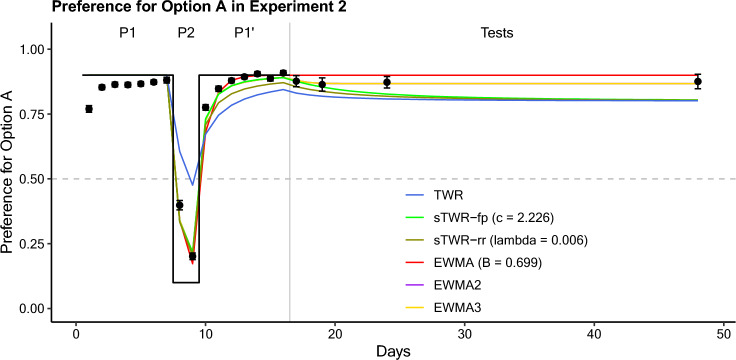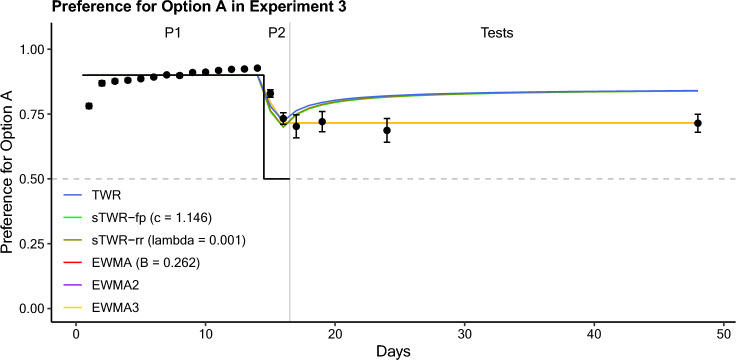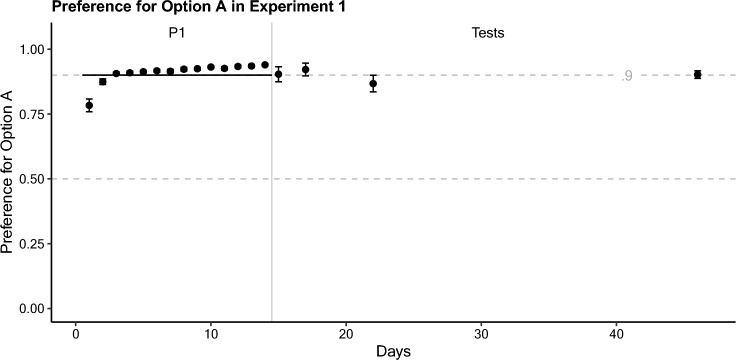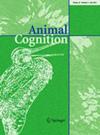Further examining how animals weigh conflicting information about reward sources over time
Abstract
Spontaneous recovery of choice is a behavioral phenomenon where a delay period (without new experience) elicits the recovery of a preference consistent with a previous distribution of rewards, rather than the most recently experienced distribution of rewards. On short timescales (< 48 h), the occurrence of spontaneous recovery of choice has been effectively predicted by the Temporal Weighting Rule. However, previous study of this phenomenon over longer timescales (> 48 h) has found results inconsistent with model predictions. The present experiments investigated three potential explanations for these results: (1.) whether time’s passage alone causes animals to revert to random exploratory behavior; (2.) whether time’s effect on behavior is moderated by experience of volatility in rewards during training; and (3.) whether a drift toward random exploratory behavior produced by time’s passage can be distinguished from the effect of spontaneous recovery of choice. Subjects experienced varied reward conditions in a concurrent choice procedure before preference between options was evaluated at various test delays. Obtained results ruled out these first two explanations, but were inconclusive in distinguishing the effects of a drift toward random exploratory behavior from the effect of spontaneous recovery of choice. Limitations and directions for further investigation are discussed.




 求助内容:
求助内容: 应助结果提醒方式:
应助结果提醒方式:


